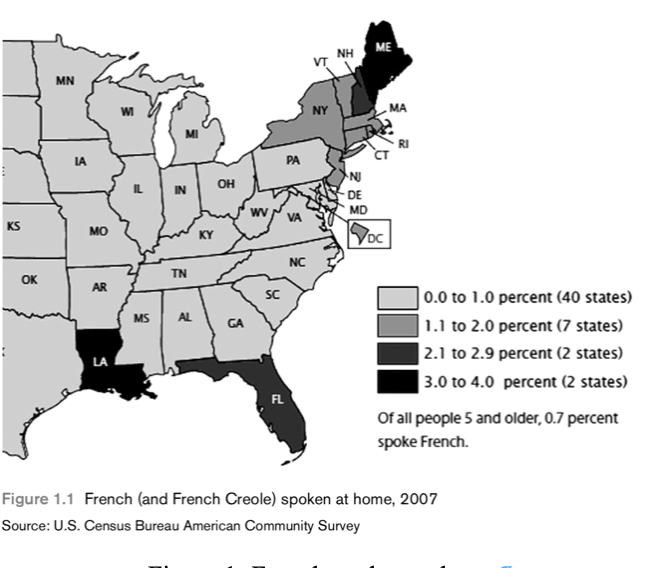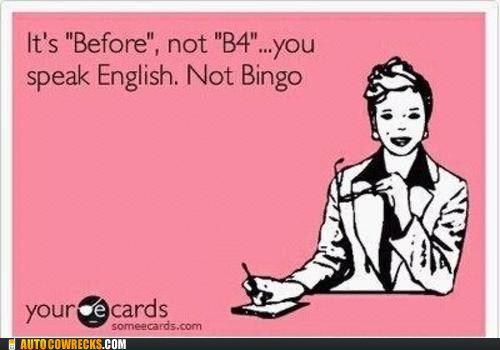The Problem in the Educational System: Standard English only?
Often children are being discriminated against because of their inaccuracy in speaking standard English. But is it true that people who speak better standard English is necessarily superior? In the BBC news article, titled Actress Emma Thompson attacks the use of sloppy language displayed the perspective of the Oscar-winning actress Emma Thompson on teenagers using slang alongside with two other language specialist’s statement; one disagreeing and the other supporting. In the article, Thompson said to the Radio Times that she told her former students that slang words are making them look stupid and that people who do not speak “proper” English makes her feel paranoid. Matter of fact, a public figure can be influential to a society based on their words. By means Thompson as a well-known actress in discriminating against language (slang.) Although it is Thompson’s point of view, yet, the widespread criticism she made might offend people such as teenagers and immigrants while they use slang as a way to build community; and they are the majority of the United States population. Thus, Thompson extensively creating internalized prejudice among the different English speakers by influencing her supporters to think they are somewhat better because of their articulacy in standard English. Ultimately, segregating the non-standard English speakers in the education system, or worst, in the United States.
On the opposite ends, Lippi Green, the author of the book English with an Accent, wrote in the first Chapter called the linguistic facts of life that there is no such thing as superior or right and wrong in the English language. One of the linguistic facts of life is that English variation is intrinsic to all spoken language at every level. Green emphasizes the idea of the general public being forced by the institutional practices to seek the “proper” English. All the dialects and language are equal because it all provides the means to communicate efficiently; this statement proves that there are no needs to acquire perfect standard English skills. On top of the assertion, children and adults are more proficient at communicating with their home tongue than using only standard English. Using our variety of English is a way of reforming the educational system, telling them that we are one nation with language freedoms. Green believes if we truly understand that, eventually, the English language system will assimilate the myth and mindset that standard English is not the language everyone should speak as of their primary language.
The United States consists of multiple languages and dialects speakers, they are constantly being victimized against because their language is defined as broken, and decided to move to states where their language is acceptable. The statistic is demonstrated in figure one below. It shows the percentage of French speakers in different states. Accordingly, the isolated language groups live in states such as Las Angeles, Florida, and Maine.

Figure 1: French spoken at home
However, this is an issue that might affect everyone because of the number of non-native speakers in the United States. There will inevitably be the usage of dialects. In this case, discriminating against a certain dialect will evoke United States segregation in language, and people will not be as “socialized” due to the lack of communication with other cultures or people with a different background.

Figure 2: Meme
To this day, I believe everyone who lives in the city at least text once in their life. As we all know, there is a whole new language, shortcut, or slang, however, you like to call it in texting. Many people might not necessarily like the usage of an abbreviation because it can sometimes be upsetting to see the manipulation in English. This is exactly why many teenagers or millennials are being blamed for “degrading” English because the language we use to text is not in the standard English form. As shown in figure 2 above, the word “before” is being shortened to “b4” in texting. The teacher in the image, representing some of the audience, thinks that using b4 is almost making you sound like you are writing/texting in another language. The meme is very humorous but at the same time, very thought-provoking. It is reasonable to say in academic writing students should eliminate the usage of texting language, yet, I think using b4 in a non-professional situation is perfectly fine. It is a way for teenagers or everyone to text faster and communicates more efficient to catch up with the current hype. Imagine someone texting in standard English with no slang or abbreviations. This would be unlikely for a teenager to do, even so, it would take longer to deliver the message. I did not want to discriminate standard “English” but to show that using slang and abbreviations in texting is more lenient for some people. In the hope of preventing the worsening in segregation and judgments on language differences, I wish knowing that English variation is intrinsic to all spoken language at every level can help readers to understand the basics of English. It is depending on the communication effectiveness and not the actual “rule” of the language.
Works Cited Page
“Actress Emma Thompson Attacks Use of Sloppy Language.” BBC News, BBC, 28 Sept. 2010, https://www.bbc.com/news/uk-11420737.
“It’s ‘Before’, Not ‘B4’ You Speak English. Not Bingo.” Joke All You Can, http://jokeallucan.blogspot.com/2014/08/its-before-not-b4-you-speak-english-not_17.html.
Lippi-Green, Rosina. English with an Accent: Language, Ideology, and Discrimination in the United States. Routledge, 2012. EBSCOhost, search.ebscohost.com/login.aspx?direct=true&site=eds-live&db=cat06118a&AN=neos.5294124&custid=s3443875.

